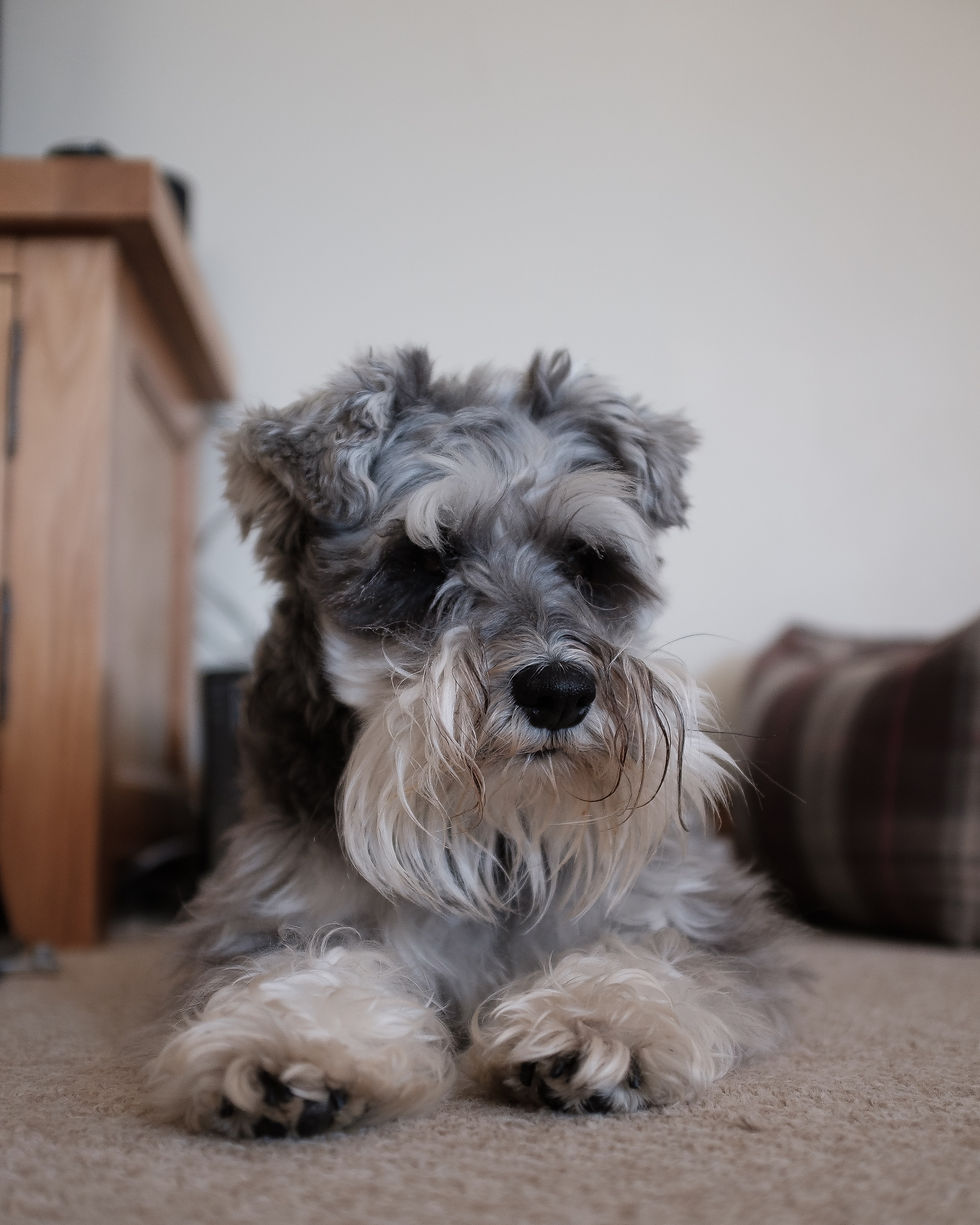Understanding Canine Anxiety – Signs, Causes & How to Help Naturally
- Kerrie Hyland

- Jun 13
- 3 min read
Does your dog tremble during storms, panic when you're about to leave, or seem constantly on edge?
You are not alone.
Anxiety is one of the most common behavioural concerns in dogs—and it can significantly impact their health, behaviour, and quality of life. In Addition to the effect it has on their life, it also impacts you and your families life.
The good news? There are effective, natural strategies that can help soothe your anxious pup.

What is Canine Anxiety?
Canine anxiety is a state of persistent fear, stress, or unease that can stem from emotional, environmental, or physical triggers. It’s a complex condition that affects both the nervous system and gut health in dogs, end everything in between. The hormones and neurotransmitters involved in the stress response and anxiety affect every part of the body.
What are Some of the Common Signs of Anxiety in Dogs
Pacing, trembling, panting
Barking, whining, howling excessively
Hiding or clinging to you
Destructive behaviours (chewing, digging, destroying the couch for the third time, or ripping apart a door....)
Accidents in the house- even when full house trained.
Excessive licking or chewing paws
Loss of appetite or gastrointestinal upset
What Causes Anxiety in Dogs?
There are many casues of anxiety, some are known triggers, and some are not. Some dogs can have no apparent trigger, and other dogs can be exposed to a known trigger, and not show any sign of anxiety.
I believe there is a real genetic element of anxiety. Any dog that shows extreme anxiety shouldnt be used in a breeding program. Here are some triggers, which may contribute to the development of anxiety.
Separation: Being left alone or changes in routine
Exposure to Noise: Especially if the dog is already in a fear state. Thunderstorms, fireworks, loud music
Past trauma: Rescue or abuse history
Poor socialisation: During puppyhood or from isolation
Health issues: Pain, gut dysbiosis, or hormonal imbalance - although this is a little chicken or the egg. Stress causes all of these things, and these things all contribute to stress and anxiety.

What are Some Natural Ways to Help an Anxious Dog
1. Exercise & Mental Enrichment
Regular walks, scent work, and puzzle toys help regulate stress hormones and boost mood.
2. Nutritional Support
Diets rich in omega-3 fatty acids, B vitamins, and tryptophan support neurological and gut health.
Eliminate artificial additives and allergens.
3. Herbal Remedies
There are so many herbal options for anxious dogs. We can use herbal adaptogens and tonics to help regulate and tone the stress response, and also nervines to help with calming and relaxing.
I have a free ebook on some great herbs to use in canine anxiety. You can find this here just scroll on down to the bottom of the page
Some examples of herbs we can use in different scenarios are
Chamomile: Calming and anti-spasmodic
Lemon Balm (Melissa officinalis): Eases nervous tension
Brahmi (Bacopa monnieri): Enhances focus, reduces cortisol
Baical Skullcap: Balances the HPA axis
4. Medicinal Mushrooms
Reishi & Lion’s Mane help modulate stress responses and support the nervous system. I love medicinal mushrooms. You can find out more about these in my ebook The Mighty Medicinal Mushroom for Pet Health
5. Probiotics & Gut Health
Research shows a strong gut-brain connection in dogs. Supporting gut microbiota can improve mood, especially strains like Lactobacillus rhamnosus and Bifidobacterium animalis. Prebiotics can also be as important in the nourishment of the microbiome.
6. Safe Spaces & Training
Create calm zones in the home and use desensitisation or counterconditioning techniques with positive reinforcement.I strongly recommend working with a good trainer with experience in canine anxiety.

Anxiety in dogs is more than just a behavioural issue—it's often rooted in deeper physical imbalances. By supporting your dog holistically—emotionally, nutritionally, and physically—you can dramatically improve their sense of safety and wellbeing.
If you are after a more comprehensive insight into how you can help your anxious dog, Join the Canine Anxiety Masterclass.
Give your dog a pat for me
Kerrie
.png)



Comments